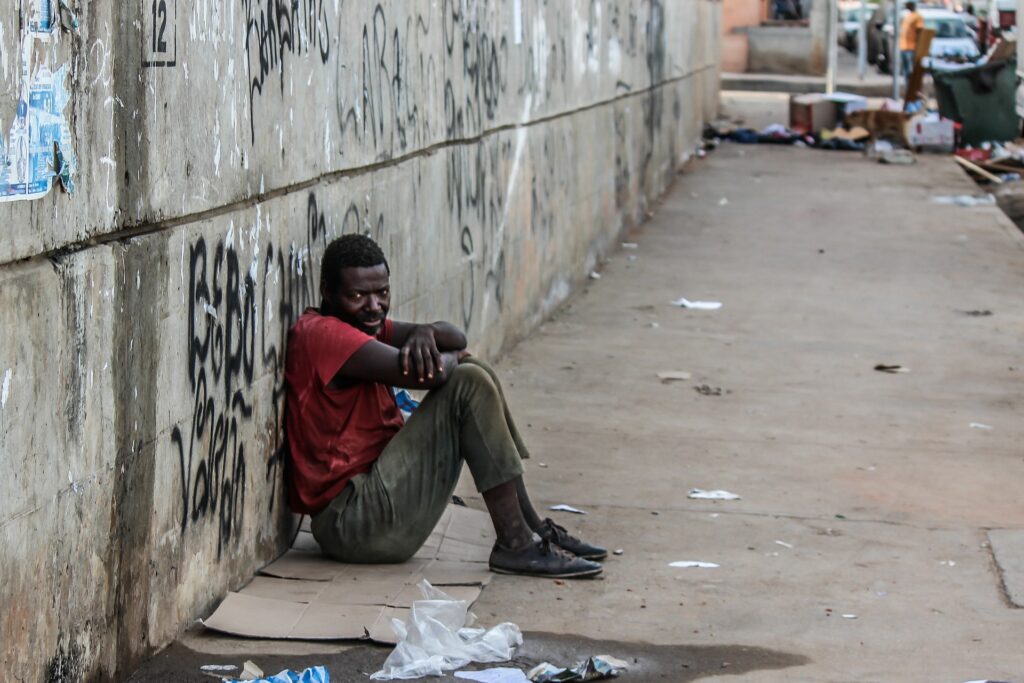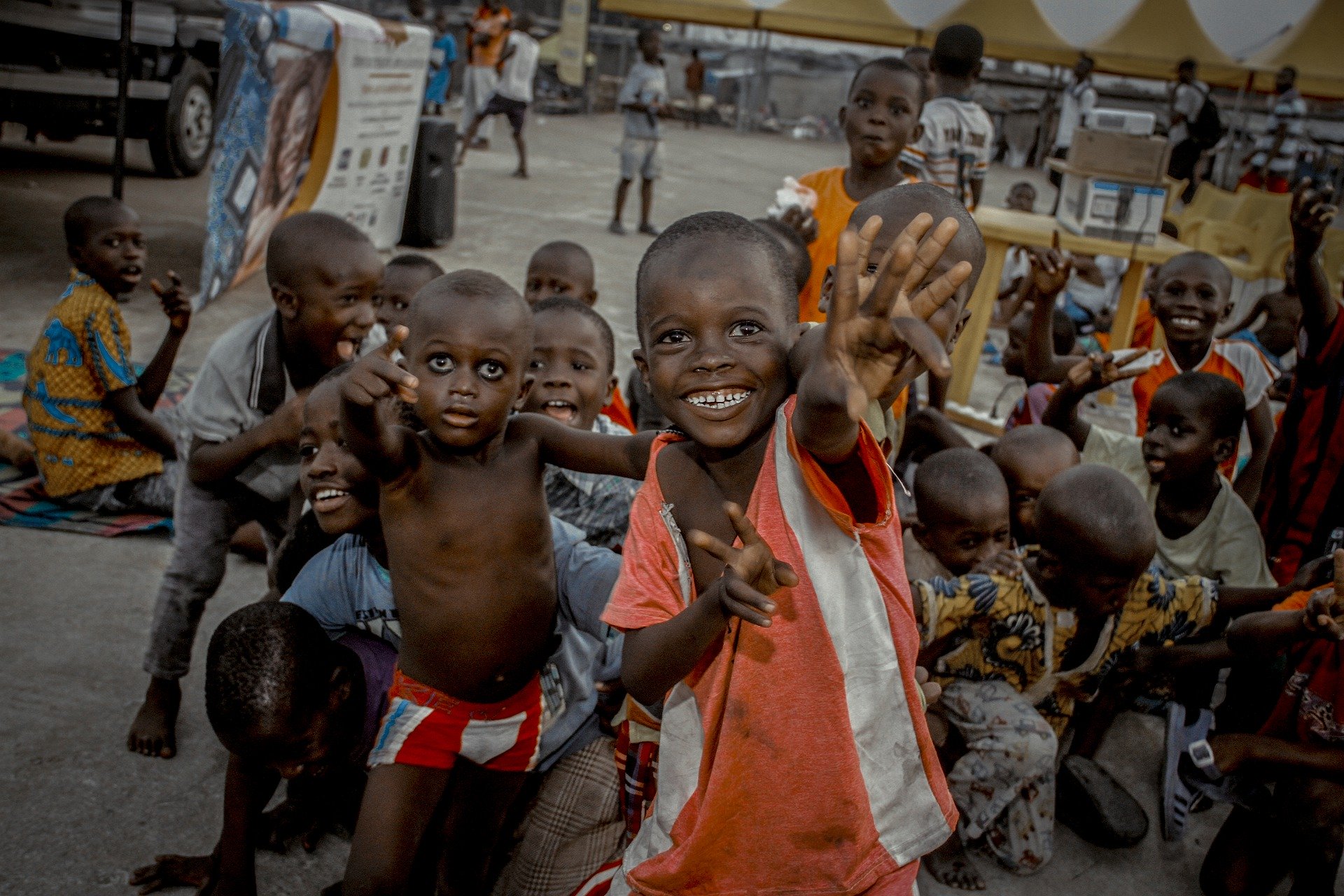I usually wonder about the whole self-help industry that focuses on topics like“how can you be happy?” “what are the five steps you can follow to be a millionaire?” “what are seven steps that you need to get the career that you want?” and it goes on with the focus on me, me, and me. This has become a norm without looking at helping the next person. Few or none of these individuals will focus on “what are the five steps that you can take to help the person next to you lose some weight?” or “what are the seven steps that you can follow to help the person next to you find the job that they want to do?”.
Being happy and being fulfilled are two different things, you can be happy because you did great things at work, you can be proud because you did great things at work, you can also be excited because you had a big success at work. However, getting fulfilled will happen when you do something for someone else. It’s the only way we get that 100% fulfillment feeling. I used to wonder about the statistics of people that don’t feel fulfilled by the work they do, which is constantly at about 90%. It’s not because of the job – it cuts across different types of professions, it’s not because of the pay- it cuts across low and high earners, and it’s not because of the work benefits either. It is because we don’t help each other anymore. We sit in our cubicles in the office and we work and anytime we turn to anybody else, it is because we need something, or we need to get something from them. The average worker at the workplace, or should I say the work environment, is not designed to allow us or encourage us to put ourselves out there simply for no other reason than to help somebody else.
Let me attempt to explain what generosity is. Generosity is doing something for someone else and expecting nothing in return at no point ever. It is not about the mindset of “I did something for him, why won’t he help me?”. It is not an equation like I did this so you owe me this. Itis designed to fill a vacuum in your life that nothing else in the entire world can fill. We feel good when we help others because nature has given us this feeling of fulfillment because we were created to help others it is in our original makeup. When we do something for someone else we feel great, this is to encourage us to keep helping others.
A friend shared the outcome of an experiment he did with a homeless person and he took permission from the homeless person who volunteered for the experiment. We all know the whole idea of giving to the homeless on the streets, right? You have sometimes walked down the street and seen someone begging and you either have or haven’t given them some money. When you do give some money, you feel good; you took an action that gave you that feeling. That is a legitimate commercial transaction. You know commercial transactions are defined as the exchange of consideration. There was an exchange of consideration by your action. By giving them money, you got the feeling of goodwill; your action produced that feeling. If you didn’t give money, you either feel nothing or you feel bad. You can’t feel good by not giving.

Alright, you paid for that feeling so another question is: “how is that person encouraging us to give?” The problem is most of those who are the less privileged act like every corporation in the world. They talk about themselves and are self-centered. They sit there with their little outdoor advertising a little sign and it says, “I’m homeless I’m hungry, I am blind or deaf”. They try to appeal to different sets of people like religious, kind, and compassionate. This was the experiment, he found a random homeless lady on the street that was willing to participate. The homeless lady’s sign was typical “I’m homeless and I’m hungry” He changed the message on her sign and the new sign made her in two hours twice more than what she makes in a day with the old sign. The question is what did the new sign say? The sign said, “if you only give once a month, please think of me next time”.It had nothing to do with the taker; it had everything to do with the giver. One of the objections people give when they don’t give is that I can’t give to everyone? How do I know that they really need it? So, in the new message, he addressed both of those concerns. I know you can’t get to everyone so if you only give once a month, my cause is legitimate, I will still be here when you’re ready to give. This is also where non-profits miss it. They focus on the wrong message with little legitimacy. Make it about them, not about you. The fact of the matter is 100 percent of customers are people and 100 percent of clients are people and 100 percent of employees are people. I don’t care how good your product is. I don’t care how good your marketing is. I don’t care how good your design is. if you donat understand people, you don’t understand business. As a result, charity organizations should learn to understand how to tell a compelling story that resonates with the people they want to donate to their cause.
I once heard a speaker talk about crab fishermen and the fact that these crab fishermen had one of the top five deadliest jobs in the world. I don’t know what the exact number is, but dozens of fishermen die every year doing this, according to the speaker. The speaker spoke about a television program where people watch these crab fishermen in the sea doing this dangerous job. In one of the episodes, he narrated an incident where a crab fisherman on another boat without cameras fell into the sea during a storm and the crab fishermen in the other boat saw him fall and rushed in risking their lives to save him in the ocean. The ocean is so cold that if you’re in the water for a minute, or a minute thirty seconds, hypothermia will set in, and you die. They come upon him and he is screaming don’t let me die and they pulled him on board. Not out of the woods yet they stripped off his clothes because it’s wet and cold and they wrapped a blanket around him to prevent hyperthermia from setting in.
He survives and its overwhelming and the captain comes down and hugs this stranger, this young man, his competitor. He hugs this guy as if he was his own son. Everybody on the boat was crying and you realize what happened here was a human interaction. The reason they risked their own lives to help this other person, even though they spend every other day trying to get ahead and sabotage each other, is because at the end of the day they’re all crab fishermen. They know something about each other, and they know something about the risk that they all take to do this and when push comes to shove, they will put themselves out there for each other for no other reason than the fact that they are human. I promise you that every single member of that crew went home with a feeling of fulfillment. I promise you that every single person on that crew felt better in their hearts and in their jobs than the richest days they’ve ever pulled in the greatest catch.
My question is: what are you doing to help the person next to you? Don’t you want to wake up and go to work for the only reason that you can do something good for someone else? This should not be an afterthought, but it should be part of your life. As you prepare your budget, include a budget for helping others. Sometimes it has nothing to do with money but simple acts of kindness and love can go a long way.




